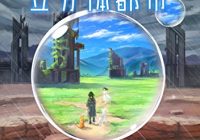Some thoughts on language selection and code switching
Learning a foreign language is a challenge no matter which language you choose, and the difficulty achieving fluency depends on how distant it is from your native tongue(s), and whether you are in an environment where you are forced (or at least motivated) to use it daily. But once you become reasonably fluent in a… Read More »
